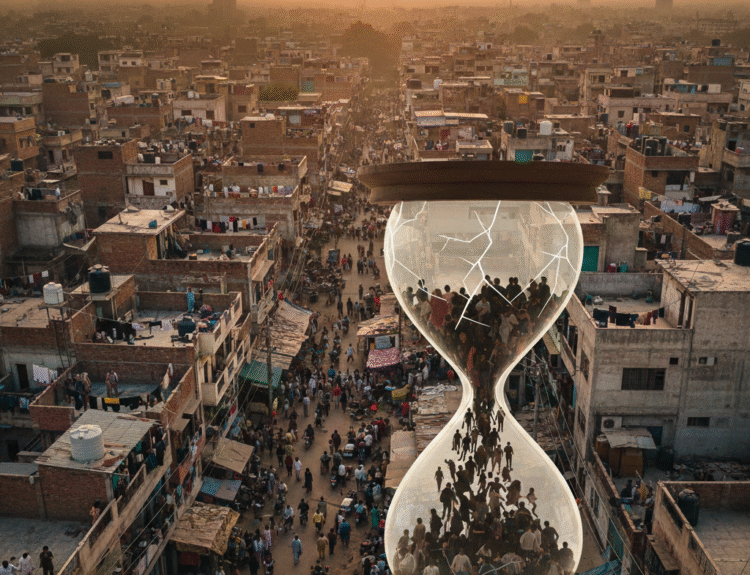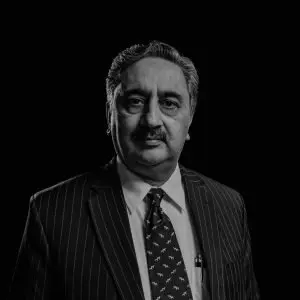By Farooq Ali
It’s used more and more often by Kashmiris but can we use the word ‘genocide’ to describe the deaths of 90,000 plus Kashmiris over the past two decades?
Many would say why not, the media today uses it for areas where there are far fewer casualties. Take Darfur for a moment. On the face of it hundreds of thousands are ‘believed’ to have died in the conflict; but the real tally is closer to 10,000. The Darfur conflict is described as a genocide although no real evidence exists to back up that claim.
On the other hand the deaths of almost a hundred thousand Kashmiris is still not recognised as a genocide by the international community. This is despite the clear intention of the Indian government to crush the Kashmiri independence movement, the presence of dozens of mass graves where more than 8,000 Disappeared are interned and recent documentary evidence of torture in Indian prisons in Jammu Kashmir.
It is not inevitable that the term genocide is applicable to the situation in Kashmir. The Indian government claims that only 47,000 Kashmiris have been killed in counter-insurgency operations. However this claim does not mitigate the claim of genocide. Whether it’s 47,000 or 93,000 the charge of genocide is still applicable to the Indian government’s activities in Kashmir.
Since the accession of the princely State of Jammu and Kashmir to the Indian Union or Bharat the people of Kashmir have been subjected to a reign of terror. From the persecutions of the post-Abdullah administration to the Congress-run state’s repression of all opposition in the 70s the Kashmiri people have not seen the kind of democracy that the Indian government claims that it has put in place in Kashmir. Rigged elections and persecution of the opposition have been the mainstay of the Indian government’s control.
I hope we would take some time before we rushed in and started using the word ‘genocide’. The fact that the media establishment in the West, or in India, doesn’t care for the truth is no reason we should stoop to their level. The claim that India has committed a genocide in Kashmir has angered Indians to such an extent that it has led to many other claims about the situation in Kashmir. The Indians, we should recall, have been claiming a ‘genocide’ for some time; that of the Pandits. The same apparently were ‘ethnically cleansed’ from Kashmir, if you believe the Indian propaganda, and many in the West do believe it, it seems (or at least their media does). Yet the fact that such claims can only point to around 200 Pandit deaths over two decades, gives the lie to the propaganda.
Of course ‘preempting’ your opponents (or in this case the victims) is always a good tactic and the Indian claims, which were made around the time of the BJP’s rise, would put Goebbels to shame (the BJP leader is a fan of Hitler incidentally). While India was busy butchering Kashmiris such as at the Gawkadal crossing, unbeknown to Kashmiris at the time it was also busy blaming the victims. But just because the ‘other side’ regularly abuses language, without thinking of the consequences, does it mean that we ought to follow suit?
That’s not to say, of course, that 90,000 dead (the official Indian count is ‘at least’ 47,000) doesn’t constitute genocide but we need to appreciate the effect of the usage of these terms. Especially the effects it has on our own culture, and in the way that we think of our country and fellow man. If the term becomes accepted by Kashmiris and widely used I fear there will be no forgetting or forgiving; it will acquire a dimension of its own – no ‘reconciliation’ committee will be able to explain why India committed genocide in its northernmost state – a state still described by Indians as the ‘jewel’ in the crown of India.
So, you see the dilemma. It is as much about keeping our sanity and remembering that not every Indian is a religious chauvinist and supports the mass killings that have been carried out in their name. On the other hand, we owe a debt to the victims; denying the ‘genocide’ does not do justice to their memories.
I have avoided the word ‘genocide’ so far, because of its emotive power, but as we learn more about the secret unmarked graves, the systematic torture of Kashmiri civilians and, saddest of all, the 8 to 10,000 cases of the ‘Disappeared’ – the young men seized from their homes by the Indian security services and never seen again – one cannot but begin to suspect that there was intention to target an entire community. That intention becomes clearer when one realises the extent of the problem caused by the occupation of Kashmir by Indian forces. Although unknown to most people India took over Kashmir from a pro-India Maharajah whose brutality was the result of an agreement with the British Raj. The British Raj was able to give that agreement because the Maharajah’s ancestors were those who betrayed the Sikh Kingdom. That treachery was the result of a historic chance for the British to gain paramountcy.
The Rice Famine was the result of British negligence to control brutality that was in the face of sense and reason. This British genocide was a joint affair between the British and the Rajput elite that was mobilised to defend their colonial assets. The following massacre in 1931 was surprising because the revolt against the Maharajah was unable to control the population. That brutal clampdown was an offence against reason.
The 1947 clampdown was different again. As it became clear that the Maharajah’s state was disintegrating Dogra troops carried out a genocide of Jammu Muslims in Hindu-majority areas. According to The Times about 237,000 Muslims were massacred in Jammu by Dogra state troopers and RSS members.
The arrival of Indian troops after 1947 led to a wholesale repression of areas outside the control of Sheikh Abdullah’s administration. Political activities were banned and many leading pro-independence supporters were taken into custody. This state of perpetual siege against the population would continue for decades until the election of Farooq Abdullah triggered mass protests against his government. The cancellation of the 1991 elections was an indication of the severity of the crisis. A key figure in the development of that crisis was Jagmohan, the hardline governor appointed to curtail the protests against the elections of 1991 which were bound to be a repeat of the rigged elections of 1987. The response of the Indian government to the protests against the rigged elections of 1987 was to crush the uprising so that the popular will to oppose that suppression never recovered. A genocide is a genocide because of intent and the identity of the victims. A conflict can generate hundreds of thousands of battlefield casualties but when the victims are young men seized on their doorsteps no one can call that a ‘war’ or just a ‘conflict’. The Indian government of course claims they were all ‘terrorists’, but 90,000 terrorists in a place as small as the Vale of Kashmir? It may be a large vale, but even so…
I am increasingly inclined towards using the term genocide to describe India’s systematic actions in Kashmir, but it is with a note of caution: in using the term above all else we must avoid the feeling of perpetual victim-hood. We must not become the ‘Jews’ of India – defined by self-pity, and a narrow cultic view of a world that has to date ignored our suffering.
————————–
This article by Farooq Ali is being re-published in TLTP with consent from his sister Dr Rehiana Ali. Farooq Ali was a Biochemistry graduate with a Masters from Imperial College London and a proud Pakistani-Kashmiri. His sister, Dr Ali, alleges he was murdered at Ramada hotel Islamabad in March 2022 – the case is currently pending in the Islamabad High Court.




